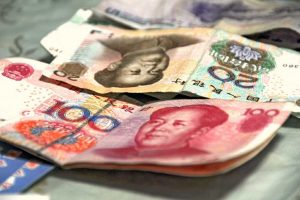China Should Maintain Control Of Its Currency
By Paula Hernandez

According to an article in the Wall Street Journal, the recent surge in the Chinese Yuan’s (CNY) value “has hurt Chinese exporters […]” and, as a result, has China’s Central Bank expunging rules which have previously made it more costly to bet against the yuan. China’s currency manipulation is not a new issue. In 2015, following an 8.3 percent decrease in Chinese exports, the Chinese Central Bank devalued the yuan by approximately two percent against the U.S. dollar. The ensuing response by the U.S. was one of panic, with President (then-Presidential candidate) Donald Trump stating that “they’re destroying us […] they keep devaluing their currency until they get it right. They’re doing a big cut in the yuan, and that’s going to be devastating for us.”
China has continued regulating its currency since then as a way to support its economy and, in a shocking turn of events, the world spins on. Now, this is not to say that I do not see people’s concerns. In a world where North Korea has access to nuclear technology and terror attacks raid Europe, China regulating its currency is truly terrifying (and most definitely not the result of finely tuned fear-mongering against our Communist foe to the East).
I propose the following: China would like to be a global superpower. China has the second largest economy in the world. The country has very little to lose and everything to gain from regulating its currency. They have made the decision that benefits their economy, despite the risk of potential backlash. The regulation of the yuan is a basic example of cost benefit analysis on China’s part, not a malicious attack on global trade. There is no doubt that China has the right to devalue the Chinese Yuan (CNY) if they see fit, and while backlash from the U.S. or even the international community against the actions of China’s Central Bank is understandable, any attempt to force China’s hand would be futile.
In short, the argument being made by U.S. economists is that the devaluing of the Chinese Yuan encourages companies to export their industries to China. In this way, China’s economy is able to grow while the economies of other nations suffer. The extreme fluctuation caused by China’s regulation of their currency could also pressure other countries to devalue their own currency, to better compete on the global markets. However, this argument would be significantly more valid if there were more recent articles and sources available and if multiple opinions could provide a clear and logical method for forcing China into a specific course of action.
As it is, most of the available rhetoric is outdated and inapplicable to the question of forcing China’s hand. We’re supposed to be upset because they’re stealing jobs from innocent Americans, but I’d argue that there is a much larger issue here. Any call for decisive action against China on this issue is primarily driven by one factor: we, the American public, need to fear China, the world’s second greatest economy, because they’re biting at our heels, hungry for the number one spot.
Whether this fear is justified or not is irrelevant to my point, the important thing to remember is that we don’t need to be testing our already rocky relationship with China during these troubling times. Market forces fluctuate; it’s their nature. Now, China is left playing catch-up to revise previous rules and regain control of their currency. Overreacting to such a trivial occurrence, especially given the current state of global affairs, is comical at best and dangerous at worst.
Paula Hernandez Garaycoa, FCRH ’21 is an English major from Miami, Florida.







































































































































































































